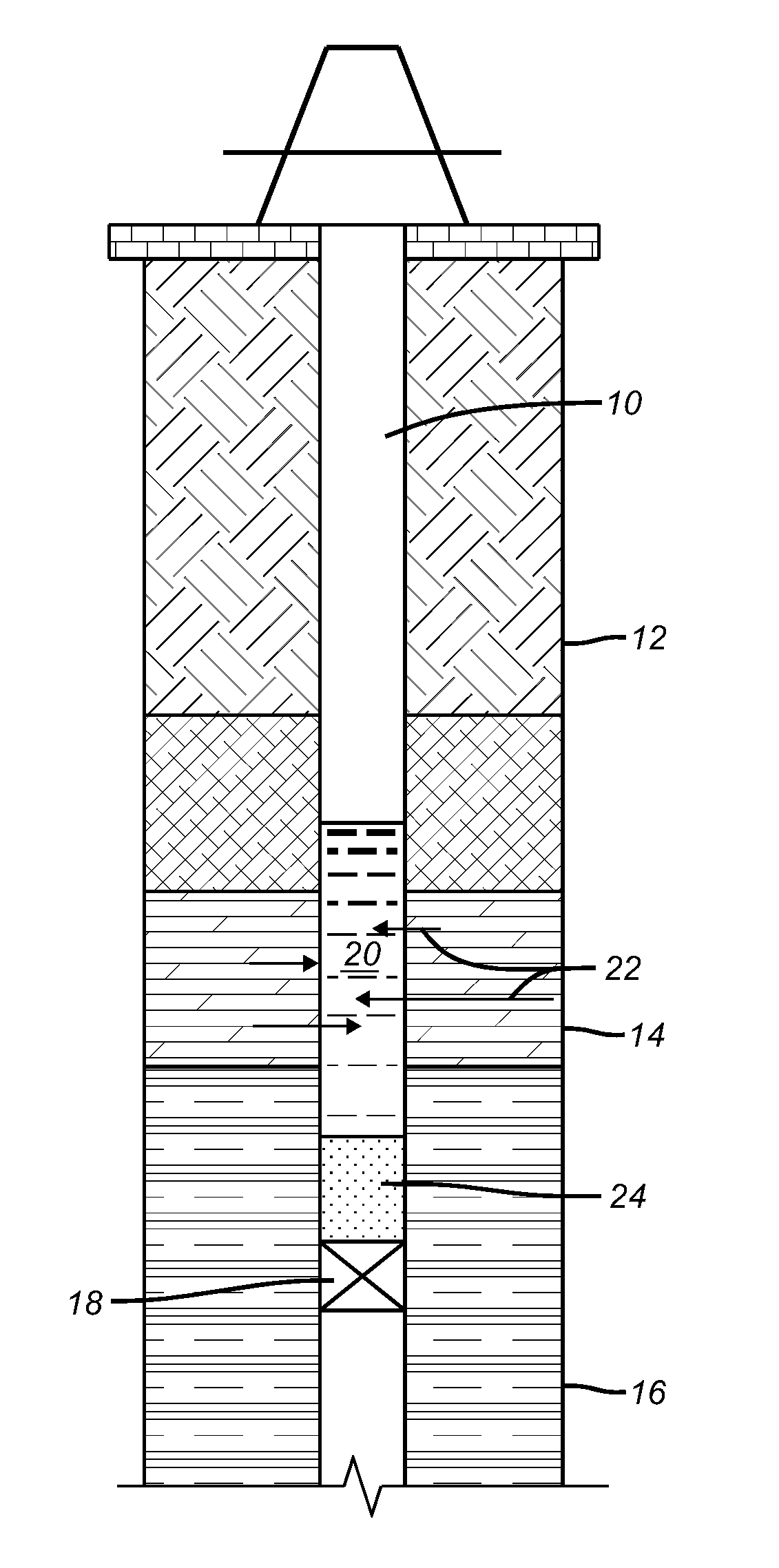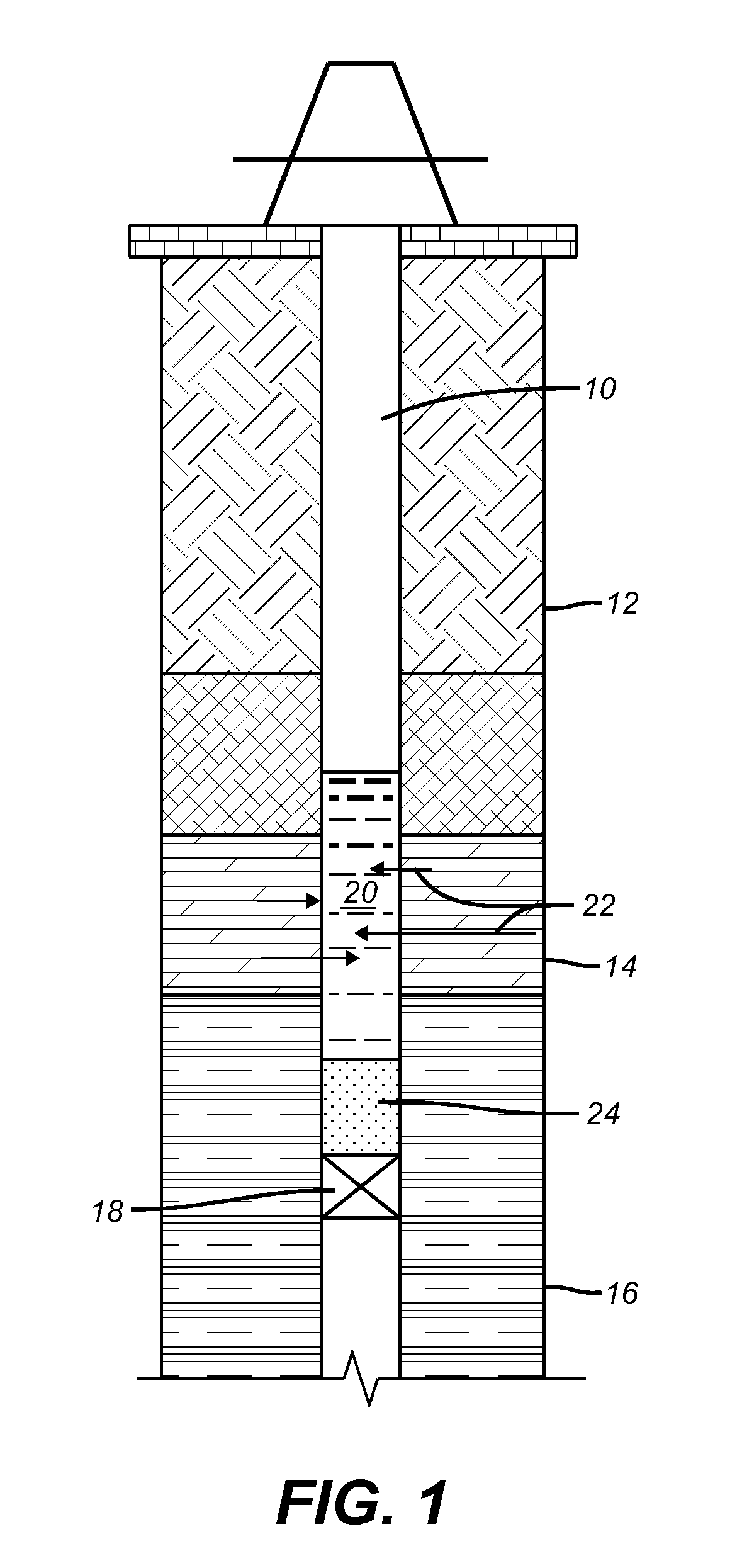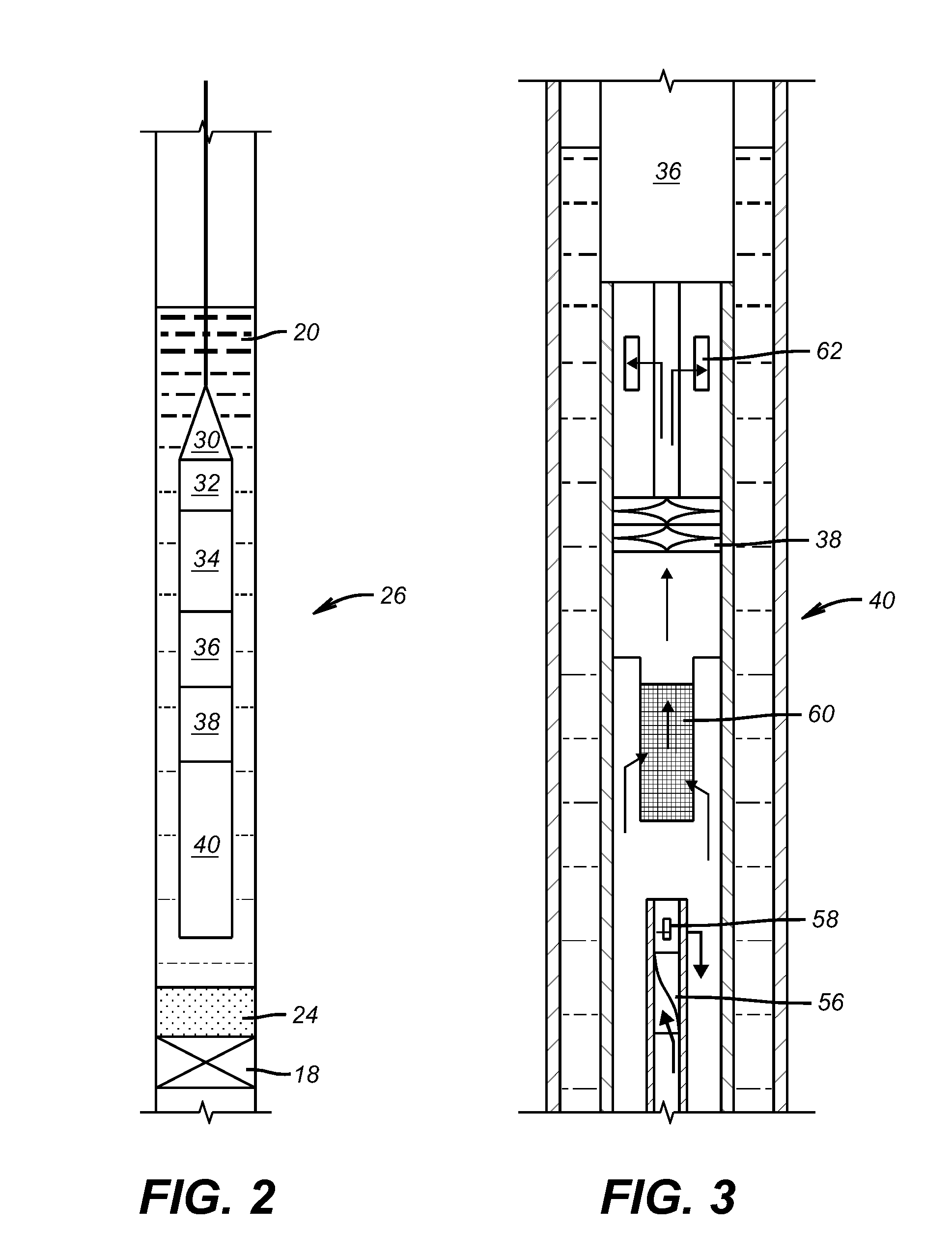Slickline Conveyed Debris Management System
- Summary
- Abstract
- Description
- Claims
- Application Information
AI Technical Summary
Benefits of technology
Problems solved by technology
Method used
Image
Examples
Embodiment Construction
[0024]FIG. 2 shows the tool 26 lowered into the water 20 on a slickline or non-conductive cable 28. The main features of the tool are a disconnect 30 at the lower end of the cable 28 and a control system 32 for turning the tool 26 on and off and for other purposes. A power supply, such as a battery 34, powers a motor 36, which in turn runs a pump 38. The modular debris removal tool 40 is at the bottom of the assembly.
[0025]While a cable or slickline 28 is preferred because it is a low cost way to rapidly get the tool 26 into the water 20, a wireline can also be used and surface power through the wireline can replace the onboard battery 34. The control system can be configured in different ways. In one version it can be a time delay energized at the surface so that the tool 26 will have enough time to be lowered into the water 20 before motor 36 starts running. Another way to actuate the motor 36 is to use a switch that is responsive to being immersed in water to complete the power d...
PUM
 Login to View More
Login to View More Abstract
Description
Claims
Application Information
 Login to View More
Login to View More - R&D
- Intellectual Property
- Life Sciences
- Materials
- Tech Scout
- Unparalleled Data Quality
- Higher Quality Content
- 60% Fewer Hallucinations
Browse by: Latest US Patents, China's latest patents, Technical Efficacy Thesaurus, Application Domain, Technology Topic, Popular Technical Reports.
© 2025 PatSnap. All rights reserved.Legal|Privacy policy|Modern Slavery Act Transparency Statement|Sitemap|About US| Contact US: help@patsnap.com



